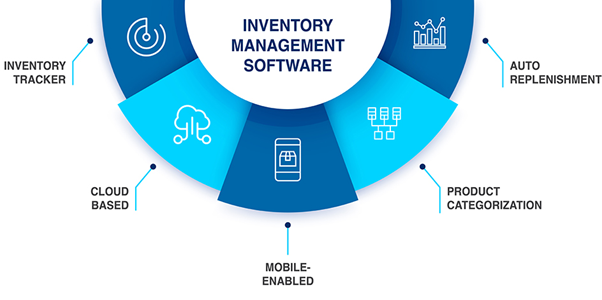In the fast-paced world of business, efficient inventory management is essential for success. Whether you’re a small retail store or a large manufacturing company, keeping track of your stocks is crucial to maintaining optimal levels, reducing costs, and satisfying customer demand. While manual methods can be time-consuming and prone to errors, inventory management software offers a powerful solution to streamline processes and optimise stock tracking. Let’s explore seven ways in which they can revolutionise the way you manage your inventory.
1. Real-time Visibility
One of the most significant advantages of inventory management software is its ability to provide real-time visibility into your stock levels. With a centralised platform, you can monitor inventory levels across multiple locations, warehouses, or stores instantly. This real-time visibility enables you to make informed decisions about stock replenishment, avoid stockouts, and identify slow-moving items before they become a problem.
2. Accurate Stock Tracking
Accuracy is paramount when it comes to inventory management. Manual methods, such as spreadsheets or pen and paper, are prone to errors, leading to discrepancies and inefficiencies. This software automates the tracking process, reducing the risk of human error and ensuring that your stock levels are always accurate. By scanning barcodes or using RFID technology, you can track stock movements with precision, from receiving goods to fulfilling orders.
3. Forecasting and Demand Planning
Predicting future demand is essential for maintaining optimal inventory levels and avoiding excess stock or stockouts. They uses advanced algorithms and historical data to forecast demand accurately, allowing you to plan inventory levels accordingly. By analysing trends, seasonality, and customer behaviour, you can anticipate fluctuations in demand and adjust your inventory strategy to maximise efficiency.
4. Streamlined Order Fulfilment
Efficient order fulfilment is crucial for delivering a seamless customer experience. Inventory management software streamlines the order fulfilment process by automating tasks such as order processing, picking, and packing. With features like batch picking and route optimisation, you can fulfil orders faster and more accurately, reducing lead times and improving customer satisfaction.
5. Cost Control
Controlling costs is essential for maximising profitability and maintaining a competitive edge. They help you control costs by optimising inventory levels, reducing carrying costs, and minimising the risk of overstocking or stockouts. By identifying slow-moving items or obsolete stock, you can free up valuable warehouse space and capital that can be reinvested in other areas of your business.
6. Improved Supplier Management
Effective supplier management is critical for ensuring a reliable supply chain and minimising disruptions. They can also help you manage suppliers more efficiently by providing insights into supplier performance, lead times, and pricing. With features like automatic reorder triggers and vendor scorecards, you can maintain closer relationships with suppliers, negotiate better terms, and ensure timely deliveries.
7. Enhanced Reporting and Analytics
Data-driven insights are invaluable for making informed decisions and optimising your inventory strategy. They offer robust reporting and analytics capabilities, allowing you to track key performance indicators, monitor trends, and identify areas for improvement. Whether it’s analysing sales trends, assessing inventory turnover rates, or forecasting future demand, you can leverage data to make strategic decisions that drive business growth.
8. Simplified Compliance and Auditing
In many industries, compliance with regulatory standards and audit requirements is a non-negotiable aspect of inventory management. They significantly simplifies the process of ensuring compliance and preparing for audits. With features such as lot traceability, expiration date tracking, and automated record-keeping, businesses can easily maintain detailed records of their inventory transactions.
Conclusion
In conclusion, inventory management software offers a multitude of benefits for businesses looking to optimise their stock tracking processes. From real-time visibility and accurate stock tracking to forecasting demand and streamlining order fulfilment, inventory software empowers businesses to maximise efficiency, control costs, and stay ahead of the competition. Investing in them is not just about managing your stocks; it’s about unlocking the full potential of your inventory and driving success in today’s dynamic business environment










